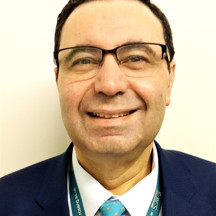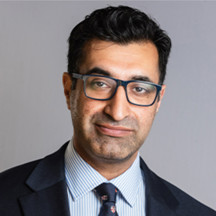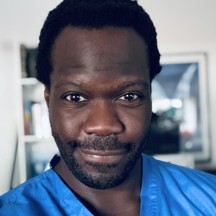Private Orthopaedic Consultancy & Surgery
If you’re struggling with joint or back pain, or hear worrying crunching noises as you move, you want a specialist that knows what you’re going through and what can be done to help quickly and effectively.
That’s what you can expect from the Spencer Private Hospitals orthopaedic service, where we offer the highest levels of patient care. Our team of highly regarded orthopaedic surgeons, Consultants, expert nursing staff, physiotherapists, and Consultant Radiologists offer treatment for a wide range of orthopaedic conditions including spinal surgery.
We offer surgery in the following areas:
- Foot & Ankle - for all types of foot and ankle problem from bunions to complex ankle and reconstructive surgery
- Knee - for any knee problem such as ACL reconstruction, knee arthroscopy or total knee replacement
- Hip - for hip replacement surgery
- Back/spine - from pain management techniques to more complex spinal work
- Hand surgery - for any hand or wrist problems such as carpal tunnel syndrome, ganglions, and Dupuytren's contracture
- Trauma - All soft tissue injuries to both the upper and lower limb
- Shoulder - for any shoulder problems such as shoulder arthroscopy or shoulder replacement
We pride ourselves on offering our Orthopaedic patients the utmost level of pre- and post-operative care in a clinical environment renowned for its high standard of nursing care and very low infection rates.
Please visit our Prices page for information on self funding your Orthopaedic care.
Our private orthopaedic services
Whether you’ve been referred to us for a specific treatment or surgery or you’d like an appointment with one of our orthopaedic specialists, we’re here to help. After your diagnosis has been confirmed, we’ll start arranging the treatments, procedures, and aftercare needed to get you back to full health.
Discover our range of private orthopaedic services below or get in touch to find out more.
FAQs about orthopaedics
However high a standard of care you receive, your body will need to heal after surgery — and orthopaedic surgery is no exception; in fact, often it can take longer as the surgery tends to be more open and invasive. You can help the process along by following the guidelines given to you by your specialist, looking after yourself, and doing the exercises that you have been given.
Find out more about knee replacement surgery and the recovery process here.
This will depend hugely on your age, your overall health, and risk factors such as your diet and how much exercise you do. If you eat healthily, don’t smoke, and exercise regularly, you should recover more quickly than if you smoke and do not exercise. Keep in mind that as you get older, your body generally recovers more slowly. You may be fully recovered in four to six weeks, but more complicated surgery can take three months to recover from. Every case is different, but your specialist will be able to give you a rough idea.
Below is a video of an Anterior Cruciate Ligament Reconstruction performed by Mr Chan Jeer one week after surgery.
It is likely that you will need to have time off work to recover and will not be able to drive a vehicle for a period of time. You will need to rest and recover at home, and during this time you may need to make adjustments around the home if your mobility is affected.
It is vital that you make sure you get lots of rest after your surgery. It will take a few days for the anaesthetic to leave your system, so during this period you will be very tired. Avoiding alcohol will help to boost your immune system and eating lots of fruit and vegetables will ensure that you have the vitamins and minerals you need. Once you are feeling better, you will be able to start moving around again and getting back to normal. Listen carefully to the advice given to you by your specialist. They will give you information on how best to look after your body post-surgery and ensure that you recover well.
Before the procedure, your orthopaedic surgeon will talk you through the process and what you can expect. You’ll be made comfortable and looked after by a team of specialists during your stay.
Your specialist and their team will stay in touch with you after surgery to make sure that you are recovering properly. You will have a post-surgery consultation to make sure that the procedure was successful and to determine whether any further treatment is necessary. In some cases, you will not need to have any further treatment and can resume normal life. However, some people may need to take continuing medication or physiotherapy for a time to help adjust to life post-surgery.
Rehabilitation is the process of adjustment that you go through after orthopaedic surgery. You may find that the part of your body that has been operated on feels different or works in a different way. You may experience pain or discomfort as you adjust, and this sometimes needs to be managed with medication. You will be given exercises to do at home to improve your mobility as you heal, but it is important not to overdo it as your body heals, as you can damage delicate tissue if you overuse it before it is ready.
Sometimes surgery can only go part of the way to treating a condition. You may find, then, that you still have mobility issues. In this case, your specialist should help to support you by suggesting services that might be useful (like occupational therapy) to ensure that you have everything you need to make home and work life as straightforward as possible. In some cases, you may need to have further surgery to fully correct an issue. This is something that you will discuss with your specialist once you have healed and undergone the recovery period.
More and more individuals are opting for private consultation and surgery for their orthopaedic injuries or complaints. Going private means that you don’t have to worry about waiting a long time to be seen by Consultants or specialists. You’ll typically have an assigned team of dedicated specialists when staying in a private hospital. That’s certainly the case at Spencer Private Hospitals, where our experienced staff work hard to make your stay as comfortable as possible.
It is often the case that private hospitals are highly specialised in certain areas for specific conditions. There are a number of things to consider before selecting a hospital to have your orthopaedic surgery or consultation.
What hospital is right for me?
Though there are many private hospitals, not all will offer the surgery you require. If you know that you need a hip replacement, for example, you will need to research which hospitals specialise in this kind of surgery. Choosing a local hospital is a good idea if you are not very mobile and also to make matters easier if you have to make multiple return trips for post-operative care such as physiotherapy.
What are my options when choosing a hospital?
The beauty of private treatment is that it is all about choice. You have many options when selecting a hospital for your treatment, and once you have researched your local area you will have a good idea of how many hospitals carry out the surgery or treatment you need. When you contact the hospital, ask about their emergency procedures. Many private hospitals do not have an accident and emergency department, meaning that they will have protocol in place to dictate what they would do in an emergency situation. It is likely that you would be transferred to a nearby NHS Trust hospital.
Fortunately, all three Spencer Private Hospital sites are situated within an NHS hospital setting. This means we have the advantage of being able to access A&E, ICU, and emergency teams, giving you total peace of mind when in our care.
Remember to ask about on-going support when selecting a hospital. Often, you will need to build muscle strength through exercises given to you by your specialist, and you will probably be asked to return after surgery to see how you are healing and whether the procedure has been successful.
How does the process work?
Some patients will already have determined the surgery or treatment they need before contacting a hospital. Others will need to see a specialist who can then assess and diagnose them and explain all the options available. How the system works will depend on where you are in this process. Contact your hospital of choice and discuss with them your case and how they would normally proceed. Every hospital will be slightly different, but you will always be seen by a specialist for an initial consultation before any decisions are made as to the treatment that would be best for you.
Who can I ask for more information?
Health professionals at private hospitals will always be happy to talk through your particular situation and the options you have. You can often arrange an initial consultation with a hospital to decide whether their services are right for you. There is nothing wrong with contacting two or three hospitals and asking about waiting times, procedures, and prices. Some practices will carry out surgical procedures in different ways, and there might be one way that is better for you than others. Ask too about the hospital’s experience of your procedure and success rates. They should have access to data that explains how successful their surgery has been in the past, and this can be useful to know when deciding on a hospital.
To contact Spencer Private Hospitals, get in touch here.
Back pain is one of the most common orthopaedic health issues and can affect anyone at any age. Many people suffer from back pain without investigating what causes it and can live with back pain for years before they seek medical attention. It is important to keep a record of your pain so that when you do speak to a doctor you can give a clear picture of the pain: where it is, the intensity and type of pain, and any common factors associated with pain, for example if it is always worse first thing in the morning or after a day at work.
What causes back pain?
There are a number of causes of back pain, but it is notoriously difficult to diagnose. There are environmental factors, such as the position of your chair or computer screen at work. Spending long periods of time driving can cause back pain, as can sleeping on an uncomfortable or unsupportive mattress or pillows. However, there are many conditions and diseases that can cause back pain as a symptom, and nerve pain can manifest as back pain. Over time, it is possible to develop abnormalities in the alignment of your spine that cause pain. And of course, it is possible that you are born with a genetic condition where pain is a symptom that requires correction. You may have injured your back, and sometimes it is clear how this happened (for example, if you were involved in a car accident), but not always. For this reason, it is important to be seen by a medical professional to determine the cause of your back pain.
How can I manage back pain?
Managing back pain will be different for everyone. It is important to be seen by a specialist before you self-medicate, as severe pain over a long period of time can lead to a dependency on painkillers or other complications. Once you know that the pain does not have an underlying cause, or is chronic, you can look into ways of managing the pain. Often, improving posture can make a big difference. This can be done by being aware of how you sit at work and at home, and by being aware of the way that you sleep. If you have suffered an injury, you may need to avoid certain activities for a time to allow your body to fully heal.
Are there treatments available for back pain?
There are many treatments available for back pain. Physiotherapists and osteopaths both deal with back pain and can try different methods of controlling pain or improving alignment. They may suggest exercises you can practise at home to improve your symptoms. Chiropractors use different methods to relieve symptoms and investigate the cause of back pain. There are alternative therapies that some people report as having a positive effect such as acupuncture. However, if there is a clear medical cause for the pain, once diagnosed by a GP, orthopaedic surgery may be available to correct the problem.
What can I do to improve my symptoms?
Being aware of triggers is very important in relieving pain. Avoiding things that exacerbate the pain, such as heavy lifting or certain types of exercise, can vastly improve your quality of life. However, the most important thing is to seek professional medical help. If you can pinpoint a cause of pain, you have a good chance of being able to deal with it. If you are a chronic sufferer of back pain, physiotherapy has been proven to help symptoms and deal with the underlying causes.
Our orthopaedic surgeons & Consultants
We have a wealth of orthopaedic specialists on hand across our hospital locations to cater to your specific needs. Take a look at our list of Consultants below, and click through on each one to find out more about their specialisms and the locations where they practise.


















